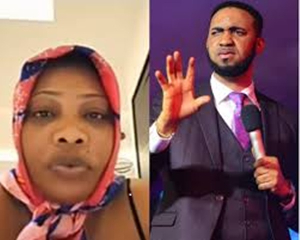The Global Corruption Barometer (GCB) – Africa 2019, released on Thursday by Transparency International in partnership with Afrobarometer, has shown that 44 per cent of people who accessed public services in Nigeria in the previous 12 months paid a bribe. This report's finding indicates there is an increase in overall bribery rate in Nigeria from 43 per cent in 2015 to 44 per cent in 2019.
The respondents in the survey, which was conducted last year, are those who said they had paid a bribe at least once to access public services such as public schools, public clinics and hospitals, ID documents, utility services or the police (either to get assistance or to avoid a checkpoint).
According to the report, more than half of all citizens surveyed in 35 African countries think corruption is getting worse in their country. 59 per cent of people think their government is doing badly at tackling corruption. At country level in Nigeria, there has been a decline in the number of people who think the government is doing a bad job on anticorruption from 78 per cent in 2015 to 40 per cent.
However, 69 per cent of people who were surveyed said they think most or all members of the Nigeria Police are corrupt. Following on the list of most corrupt institutions are members of parliament (according to 60 per cent of respondents), local government officials (55 per cent), government officials (54 per cent), and judges and magistrates (51 per cent). Based on the ten institutions featured in the report, religious leaders are the least corrupt (20 per cent). They are less corrupt than traditional leaders (35 per cent) and business executives (44 per cent). Non-governmental organisations (NGOs) are also among the most corrupt institutions (40 per cent) in the country.
"Corruption is hindering Africa’s economic, political and social development. It is a major barrier to economic growth, good governance and basic freedoms, like freedom of speech or citizens’ right to hold governments to account,” said Patricia Moreira, Managing Director of Transparency International. “While governments have a long way to go in regaining citizens’ trust and reducing corruption, these things don’t exist in a vacuum. Foreign bribery and money laundering divert critical resources away from public services, and ordinary citizens suffer most.”
On a positive note, however, more than half of the citizens believe ordinary people can make a difference in the fight against corruption. A majority of Nigerians (54 per cent) said ordinary people can make a difference in anticorruption.
TI has urged governments to put anti-corruption commitments into practice by investigating, prosecuting and sanctioning all reported cases of corruption in both the public and the private sectors, with no exception. Other recommendations include developing minimum standards and guidelines for ethical procurement; creating mechanisms to collect citizens’ complaints and strengthen whistleblower protection; supporting political party funding transparency; and allowing cross border cooperation to combat corruption.
The GCB Africa 2019 report also reveals that corruption affects the wellbeing of individuals, families and communities. “To reduce the heavy burden of corruption on ordinary people, African states that have not done so should ratify and effectively implement the African Union Convention to Prevent and Combat Corruption,” said Paul Banoba, Regional Advisor for East Africa at TI.
Business News of Monday, 2 January 2023
Source: www.financialnigeria.com













